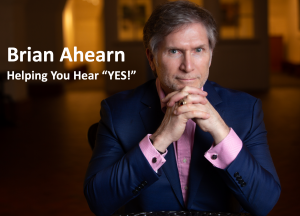Einstein was Right!
Albert Einstein is known for his contributions to science, most notably the Theory of Relativity and E=MC2, but he also taught us well when it came to communication. His sage advice was this; “Everything should be made as simple as possible, but not simpler.” And no, he wasn’t talking about memes.
Simplifying complex ideas takes effort on the part of the person who is communicating. Mark Twain said as much when he wrote, “I didn’t have time to write a short letter so I wrote a long one instead.” Knowing something well enough to break it down to its essence and then communicate it so more people understand it is hard work for the communicator and immensely helpful for the learner.
Simplify for Understanding
An example of simplifying for understanding would be explaining what it means that a star is 100 light years away. It’s factually correct to say it is approximately 600 trillion miles from the earth but that’s awfully hard to comprehend. What frame of reference does the average person have for a trillion, let alone 600 trillion, miles?
Simplifying 100 light years would be telling someone; if you could travel at the speed of light, it would take you 100 years to reach that distant star. While someone may not fully grasp the distance or the speed of light, it’s much easier to imagine with this simplified explanation.
Steve Jobs had a brilliant explanation for the first home computers. He called them bicycles for the mind. Anyone who’s ridden a bike knows they can get where they want to go faster and with less effort than running. Computers help us do more and do it all faster.
But Don’t Oversimplify
The “10,000 Hour Rule” gained popularity when Malcom Gladwell mentioned it in his book Outliers. He pointed out how Anders Erickson studied world class performers and found that generally great performers put in around 10,000 hours of practice to attain elite status.
What was missing from Gladwell’s explanation was the concept of deep practice. It would be a misnomer to think simply doing something for a long time makes you an expert. The average American works approximately 100,000 hours by the time they retire but that doesn’t make the average American an expert in their chosen field.
Learn to Spot Misinformation
An oversimplification that’s led to the spread of misinformation is Dr. Albert Merhabian’s work around communication. You may have heard in face-to-face communication 55% of the message received is through body language, 38% is based on tone of voice and only 7% is the actual words used. That’s incorrect.
Merhabian’s work centered around miscommunication. When the person receiving the message perceives the messenger and message are not in alignment (i.e., the messenger doesn’t seem to believe what they’re saying or perhaps they are lying) then people default more to body language and tone of voice to assess truthfulness.
And Now for the Rest of the Story
Famed radio personality Paul Harvey was famous for his storytelling. He would tease out some tale, get you to the edge of your seat…then go to a commercial break. Upon returning he would say, “And now for the rest of the story,” and give listeners what they needed to know.
There’s always more to the story than the complex idea made simple. Much of the time we don’t need to know more than the simple idea. I won’t be traveling 100,000 light years away and I don’t need to know the inner workings of my computer.
However, we can avoid disappointment by knowing more about what something means (10,000 hours AND deep practice) and we’d do well to steer clear of misinformation that might harm our efforts.
Remember, “Everything should be made as simple as possible, but not simpler.”
 Brian Ahearn, CMCT®, is the Chief Influence Officer at Influence PEOPLE, LLC. An author, TEDx speaker, international trainer, coach, and consultant, he’s one of only 20 people in the world personally trained by Robert Cialdini, Ph.D., the most cited living social psychologist on the science of ethical influence.
Brian Ahearn, CMCT®, is the Chief Influence Officer at Influence PEOPLE, LLC. An author, TEDx speaker, international trainer, coach, and consultant, he’s one of only 20 people in the world personally trained by Robert Cialdini, Ph.D., the most cited living social psychologist on the science of ethical influence.
Brian’s first book, Influence PEOPLE: Powerful Everyday Opportunities to Persuade that are Lasting and Ethical, was named one of the 100 Best Influence Books of All Time by BookAuthority. His second book, Persuasive Selling for Relationship Driven Insurance Agents, was a new release bestseller in several Amazon categories.
Brian’s LinkedIn Learning courses on the application of persuasion in sales and coaching have been viewed by more than 350,000 people around the world.








